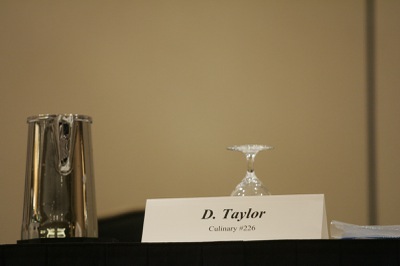Friday, June 13, 2008 | 2 a.m.
Beyond the Sun
Despite calls for unity at the Nevada AFL-CIO’s political convention this week, the state’s labor movement will not be speaking with one voice in November.
The Culinary Union, the labor federation’s largest affiliate, will separate itself from the AFL-CIO’s coordinated political efforts and instead act on its own in the general election — making its own endorsements and running its own political program.
In fact, the union went to great lengths in advance of this week’s convention to make clear that its name — and that of its sister local, the bartenders union — should not be attached to any AFL-CIO endorsements.
Until now, the Culinary has worked with the AFL-CIO in Nevada, even though on the national labor stage, Culinary is associated with Change to Win, a rival labor organization.
The local split is the latest evidence that wounds inflicted during Nevada’s presidential caucus in January are festering, not healing. The development also stands in stark contrast to Big Labor nationally, which has called for unions to unite behind Democratic Sen. Barack Obama.
Unions represented by the nation's two largest labor coalitions, AFL-CIO and Change to Win, chose sides in the primary — and at times campaigned bitterly against each other on behalf of their candidates. Obama pulled most of his union support from Change to Win, a labor federation that includes Culinary parent Unite Here.
Sen. Hillary Clinton won the support of more than a dozen AFL-CIO-affiliated unions, including the American Federation of State, County and Municipal Employees.
Leaders of the rival labor organizations started reaching out to each other as the primary season came to a close last week.
“During the primary season we showed that when this union makes an endorsement, we back it up with everything we’ve got, and that’s exactly what we’re going to do in November,” AFSCME President Gerald McEntee said in a statement.
“When our members mobilize, their activism is second to none. When we are united, our power is second to none. We have the troops, the resources and the political will to end the era of George Bush.”
That intense activism rankled the Culinary Union in the run-up to the Nevada caucus. Working on behalf of Clinton, AFSCME deployed 125 paid employees statewide in what it billed as a member-to-member outreach, in addition to busing in at least 100 more members just before the contest. The Culinary questioned why AFSCME would need that many workers to reach just 3,000 or so members here. It also accused its rival of violating Democratic Party rules by electioneering at caucus sites.
AFSCME supported a lawsuit brought by the state teachers union, among others, to shut down special caucus sites on the Las Vegas Strip, where the majority of Culinary members work. Through it all, the state AFL-CIO remained neutral.
At the time, Culinary head D. Taylor angrily compared the tactics with those used by Republicans in Florida in 2000 to suppress voter turnout. In an interview Thursday, though, he said the state’s unions had reconciled and the Culinary’s decision to split from the AFL-CIO’s political program had been under consideration for some time.
The Culinary and the labor federation have backed different candidates in the past — often confusing Culinary members, Taylor said. This week’s decision, he said, is little more than a formality.
Taylor said the decision was not related to bitterness stemming from the caucus, particularly between the Culinary and AFSCME, but added, “The only bitter feelings should be on their part because they picked a loser.”
Candidates must now separately appeal to the Culinary — the state AFL-CIO’s 60,000-member powerhouse — and the larger federation.
Danny Thompson, executive secretary-treasurer of the Nevada AFL-CIO, conceded the hard campaigning had taken a toll but said the state’s labor movement would be united behind Obama in November.
Labor advocates say unions — locally and nationally — have little choice but to unite behind the Democratic nominee.
“The stakes are too high and the differences between Obama and McCain are just too stark,” said David Bonior, a former Michigan congressman close to labor who ran John Edwards’ presidential campaign and now supports Obama.
With the prospect of a Democratic president and a larger majority in the Senate, labor sees its No. 1 goal — labor law reform — within reach. Unions are seeking landmark legislation that would make it easier for workers to organize, and potentially reverse decades of declining membership.


Join the Discussion:
Check this out for a full explanation of our conversion to the LiveFyre commenting system and instructions on how to sign up for an account.
Full comments policy